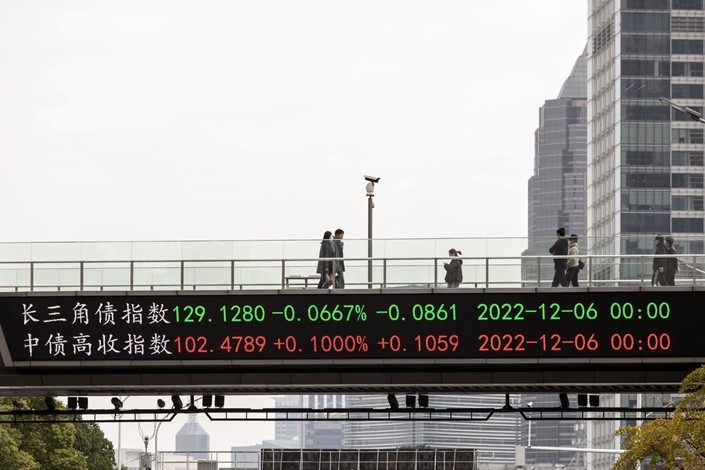Huangshan, China: Ms. Kristalina Georgieva, Managing Director of the International Monetary Fund (IMF), issued the following statement today at the conclusion of the Seventh “1+6” Roundtable convened in the province of Anhui by the Chinese authorities:
“I am deeply grateful to Premier Li Keqiang and the Chinese authorities for bringing us together in person for this seventh 1+6 roundtable. The focus of this year’s roundtable on “Strengthening Multilateral Cooperation for Global Common Development” could not be more timely.
“Since we last met in person in 2019, we have experienced an exceptionally difficult time. Shock upon shock have hit the world economy—the global pandemic, Russia’s invasion of Ukraine and high inflation in many countries leading to both a cost-of-living crisis and tightening global financial conditions. As a result, global growth abruptly slowed to 3.2 percent this year, and we project it to slow further to 2.7 percent in 2023. Recent indicators point to the possibility of a further downgrade.
“We are also experiencing very high uncertainty, and that requires us to work even closer together. In that sense, this 1+6 roundtable is very welcome as a place where we can exchange views and form a consensus on key actions we need to take.
“With regard to China, it has been very fruitful to listen to Premier Li on the steps the authorities’ have taken to stabilize the economy in this very difficult time. The Chinese economy faces complex challenges: the ongoing COVID 19 pandemic, pressure from difficulties in the property market, and slowing global demand. In that context, we welcome very much the decisive actions taken by the Chinese authorities.
- First, recalibrating COVID policies. This can create a better impetus for reviving growth in China, particularly if combined with more broad-based vaccinations, provision of anti-viral treatment, and ramping up healthcare capacity. This can be very good for the Chinese people and economy, and also good for Asia and the world economy.
- Second, continued macroeconomic policy support will help protect the recovery. Boosting fiscal support to vulnerable households and strengthening social safety nets would promote consumption, and policy support to businesses can help create new jobs and retain a high level of employment. Subdued inflation leaves room for accommodative monetary policy to continue to stay in place to support the recovery.
- Third, we are supportive of measures taken to address difficulties in the real estate sector and see scope for further action at the central government level, including by increasing funding for the completion of the troubled projects, thus contributing to market-based restructuring that will safeguard financial stability.
- And fourth, we welcome actions to continue opening up the Chinese economy and re-accelerating market-based structural reforms that have served China so well in the past and continue to serve medium- and long-term growth prospects.
“We also had a very engaged and productive exchange on global challenges, where multilateral cooperation is essential.
- Trade and addressing the risk of fragmentation. This is the time we need each other the most. We must work together to ensure that trade remains the source of global growth that has served us well for so many years and lifted so many people out of poverty. We were reminded during the roundtable that 1.5 billion people—many of them here in China—have been lifted out of poverty because of an integrated world economy. To preserve and expand these benefits, countries must redouble their commitment to openness and global economic integration.
- Reduce the risk of debt crises. We had a very fruitful exchange, both on the G20 Common Framework and on some specific cases. We need to build on the momentum of the agreement on Chad’s debt treatment and accelerate and finalize the debt treatments for Zambia and Sri Lanka, which would allow for disbursements from the IMF and multilateral development banks. We are also seeing new cases that are coming in this time of tighten global financial conditions. We talked about how we can prevent individual cases of debt distress from triggering a global debt crisis. The application of the G20 framework must become much faster and more predictable, and it needs to reach a broader set of countries We also see space for a platform for more systematic engagement on debt issues, where China can play an active role.
- Resilience to climate change. Climate shocks are already present and likely to intensify in the future, and they require global cooperation to successfully build resilience in the world.
“Meeting in person for this 1+6 roundtable has provided a tremendous opportunity to engage with our key partners like the People’s Bank of China, Ministry of Finance, as well as EXIM Bank and China Development Bank. I want to thank them for this very fruitful engagement and thank China for the support it provides to the Fund to offer capacity development. While in Huangshan, we renewed our memoranda of understanding with the PBOC and MOF, continuing China’s support for the Fund’s efforts to help countries help themselves by building stronger institutions and policy capacity.
“I want to finish with Premier Li’s image of an ocean. The world economy today is like a boat in rough seas, and we can only bring it safely to shore if we all row together and row in the same direction. This is what we are doing here today — recommitting to and building on the strength of multilateral cooperation during this particularly challenging time.”
Source : IMF

